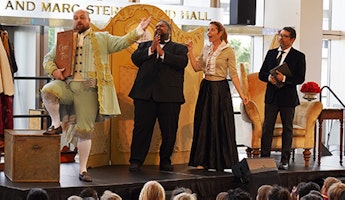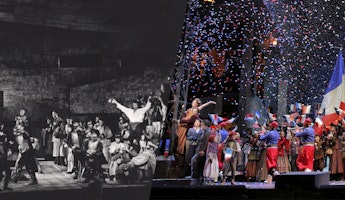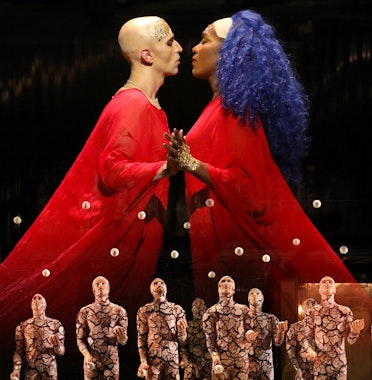
Henry Dumas
Born: 1934 (Sweet Home, Arkansas). Died: 1968 (New York City, New York). LA Opera: His poem "Brown Sounds" was set to music by composer Ayanna Witter-Johnson for a 2021 Digital Short.
“In 1968, a young Black man, Henry Dumas, went through a turnstile at a New York City subway station. A transit cop shot him in the chest and killed him. Circumstances surrounding his death remain unclear. Before that happened, however, he had written some of the most beautiful, moving and profound poetry and fiction that I have ever in my life read.”
—Toni Morrison
Fiction writer and poet Henry Dumas was born in Arkansas, but moved to Harlem when he was 10. He attended City College in New York before joining the Air Force; he was stationed in San Antonio, Texas, and on the Arabian Peninsula. Dumas attended Rutgers University and worked for a year at IBM, then left the company to teach and direct language workshops at Southern Illinois University. He and his wife, Loretta Ponton, had two sons. Identified with the Black Power movement during his lifetime, Dumas was also active in the civil rights movement. At the age of 33, Dumas was shot and killed by a New York City Transit policeman in a case of mistaken identity.
Eugene Redmond, a fellow teacher at Southern Illinois University, helped to make Dumas’s work available; posthumous collections of Dumas’s poetry include Play Ebony, Play Ivory (1974) and Knees of a Natural Man: The Selected Poetry of Henry Dumas (1989). Dumas’s poetry is influenced by his interests in African American history, jazz, gospel music, and Arabic culture and mythology (an interest piqued during his time stationed on the Arabian Peninsula), as well as Christianity and the supernatural.
Dumas’s short stories are collected in Goodbye Sweetwater: New and Selected Stories (1988) and Echo Tree: The Collected Short Fiction of Henry Dumas (2003).
Courtesy of The Poetry Foundation
“In 1968, a young Black man, Henry Dumas, went through a turnstile at a New York City subway station. A transit cop shot him in the chest and killed him. Circumstances surrounding his death remain unclear. Before that happened, however, he had written some of the most beautiful, moving and profound poetry and fiction that I have ever in my life read.”
—Toni Morrison
Fiction writer and poet Henry Dumas was born in Arkansas, but moved to Harlem when he was 10. He attended City College in New York before joining the Air Force; he was stationed in San Antonio, Texas, and on the Arabian Peninsula. Dumas attended Rutgers University and worked for a year at IBM, then left the company to teach and direct language workshops at Southern Illinois University. He and his wife, Loretta Ponton, had two sons. Identified with the Black Power movement during his lifetime, Dumas was also active in the civil rights movement. At the age of 33, Dumas was shot and killed by a New York City Transit policeman in a case of mistaken identity.
Eugene Redmond, a fellow teacher at Southern Illinois University, helped to make Dumas’s work available; posthumous collections of Dumas’s poetry include Play Ebony, Play Ivory (1974) and Knees of a Natural Man: The Selected Poetry of Henry Dumas (1989). Dumas’s poetry is influenced by his interests in African American history, jazz, gospel music, and Arabic culture and mythology (an interest piqued during his time stationed on the Arabian Peninsula), as well as Christianity and the supernatural.
Dumas’s short stories are collected in Goodbye Sweetwater: New and Selected Stories (1988) and Echo Tree: The Collected Short Fiction of Henry Dumas (2003).
Courtesy of The Poetry Foundation








/03-cosi/_dsc0996_pr.jpg?format=auto&fit=crop&w=345&h=200&auto=format)













